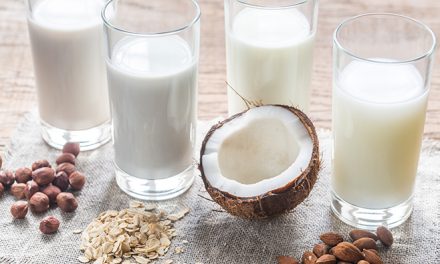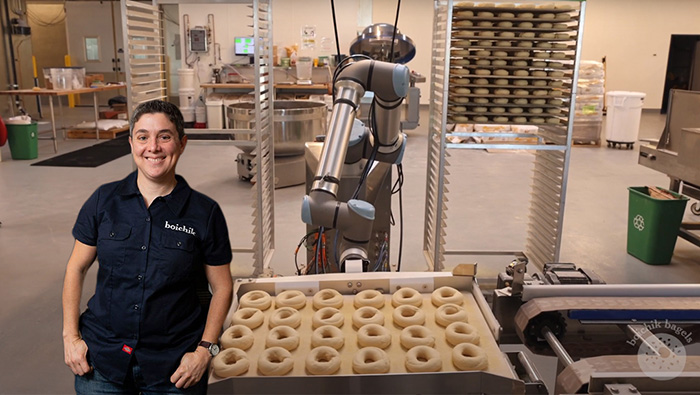
Purple cabbage used to make sauerkraut starts to change color as it ferments. (Hector Amezcua/UC Davis)
The Lowdown on Home Food Fermentation
The ancient art of fermentation is America’s latest food trend, celebrated at five-star restaurants, prepared in home kitchens and touted for healing everything from obesity to cancer.
Are the health benefits real? Are there food-safety precautions people should consider when fermenting food at home? Food scientists at the UC Davis are addressing those questions and more.
“With fermentation, everything old is new again,” said Maria Marco, a microbiologist and food science professor. Marco and Erin DiCaprio, a food safety expert and Cooperative Extension specialist, recently received a $213,000 grant from the U.S. Department of Agriculture to expand the science and education of fermented fruits and vegetables. Their work will help consumers, cooks, food processers and others safely prepare fermented foods and understand the role fermentation can play in healthy diets.
Managing microbes
Fermented foods and beverages are produced by nurturing conditions that discourage the growth of harmful bacteria and encourage the growth of beneficial microorganisms. Take sauerkraut, for example. When you combine cabbage, salt, time and the right temperatures, you can help friendly microbes flourish. As they do, they convert sugars in the cabbage into lactic acid that produces tangy flavor compounds and keeps harmful bacteria at bay.
Similar chemistry is at work when producing a long list of fermented foods, such as yogurt, cheese, bread, alcohol, chocolate, coffee, salami, vinegar, kimchi, miso, tempeh and pozol.
In addition to adding new flavors and textures, fermentation can extend the shelf life of food, improve our ability to absorb some nutrients and — perhaps — provide an environment for beneficial bacteria to thrive in our digestive systems and improve human health.
“There isn’t yet a lot of scientific evidence that many fermented foods are healthier than the ingredients from which they are made,” Marco said. “Is cabbage better for you when it’s fermented? Our long-term goal is to provide solid evidence that can show whether fermented foods can, indeed, help fight chronic diseases. And, if so, how.”
A few studies in Europe suggest that fermented dairy products like yogurt and kefir can reduce the risk of cardiovascular disease. Researchers in Korea have conducted a couple small studies with prediabetic, overweight participants that showed that kimchi, a fermented vegetable dish, can increase insulin sensitivity and reduce weight gain.
Marco’s team plans to build on that research by examining fermented fruits and vegetables for their nutritional content and microbial composition. If fermentation can boost human health, Marco suspects that beneficial microbes may play a role.
“It’s quite possible that consuming fermented foods as part of a regular diet supports a healthy gut microbiome, or the bacteria living in our intestine,” Marco said. “The microbes in yogurt, for example, consume a sugar called lactose, which can cause digestive problems in humans. So, our systems may be helped by what those microbes eat, as well as by the nutrients they produce.”









